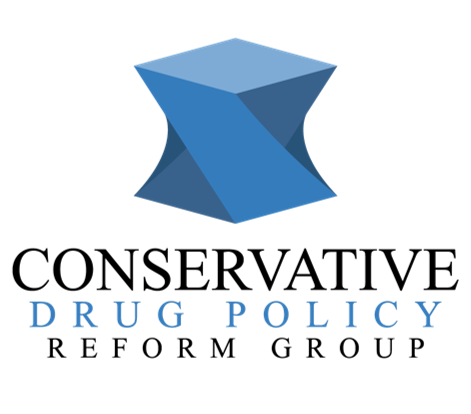CDPRG Short Video Collection
Welcome to the CDPRG’s video repository, where you can hear from our collaborators about their work advancing knowledge and understanding around cannabis and psychedelic medicine and related policies.
If you would like to connect with any of these thought leaders with a view to collaboration, interviews or simply to find out more about their work, don’t hesitate to get in touch.
Keith Abraham, Heroic Hearts Project UK
"The reason for starting Heroic Hearts earlier this year is based on my own personal experiences. In 2008 I was a paratrooper fighting in Afghanistan and due to my war-fighting experiences out there I began to struggle psychologically and physically, and after trying numerous different modalities and therapies I began to realise that I was losing hope and that these things weren't actually working for me."
Kieth Abraham is CEO of the Heroic Hearts Project UK, which assists veterans in accessing safe, legal psychedelic-assisted trauma treatments abroad. Here, he shares his own experiences of battling seemingly intractable trauma, and how entheogenic healing enabled him to turn his life around.
Dr. Jonny Martell, Imperial College, London
"Up to 30% of people don't respond to anti-depressants; many people find the side-effects intolerable. Cognitive Behavioural Therapy or CBT, for which the waiting list are long, simply doesn't work for a sizeable majority of sufferers with complex personal and social histories. The current scheduling of psilocybin is not just an absurd byproduct of cultural and political forces, it's literally costing lives."
Dr. Jonny Martell is a psychiatrist working at the Imperial Centre for Psychedelic Research in London where he is a study doctor and guide on the psilocybin vs escitalopram for depression comparative mechanisms randomised controlled trial. Here, Dr. Martell explains what the current barriers to research mean for patients, and why alternative, effective mental health treatments are desperately needed.
Prof. Anil Seth, University of Sussex
"It's been known for very many years that psychedelics offer a unique opportunity for pharmacological treatment of very distressing conditions like treatment-resistant depression, anxiety, post-traumatic stress disorder (PTSD). Psychedelic interventions can dramatically change people's outcomes for these conditions."
Anil Seth is professor of Cognitive and Computational Neuroscience at the University of Sussex, Co-Director of the Sackler Centre for Consciousness Science and Editor-in-Chief of Neuroscience of Consciousness. Here, he explains the unique properties of psychedelic-assisted treatments in furthering our understanding of consciousness and common mental health conditions, and how current scheduling of these compounds is creating unnecessary barriers.
Dr. Ben Sessa, AWAKN Life Sciences
"In the context of COVID-19, we undoubtedly have the worst to come when it comes to the economic and psychological manifestations of this pandemic, so now really is the time to start thinking innovatively about opportunities to tackle this problem, rather than waiting for the problem to get worse."
Dr. Ben Sessa is Chief Medical Officer at AWAKN Life Sciences in Bristol, which integrates psychedelic medicine into mainstream healthcare; his clinical psychedelics team are planning to expand their repertoire to include psilocybin-assisted therapy, DMT-assisted therapy and a medicinal cannabis dispensary. Dr. Sessa is currently conducting the world’s first clinical study using MDMA-assisted psychotherapy to treat alcohol addiction. Here, he discusses the paramount importance of refreshing treatment approaches before the UK's current mental health crisis gets any worse, noting the thousands of deaths and cases of distress which could be effectively prevented by expediting access to psilocybin-assisted therapies in clinical contexts.
Prof. Karl Friston, University College, London
"I suspect that nearly all of my international colleagues in both psychopharmacology and clinical academia consider the withdrawal of the current impediments as inevitable as the decriminalisation of homosexuality in the 1960s."
An authority on brain imaging, Prof. Karl Friston FRS, FMedSci, FRSB, is a British neuroscientist at University College London, and Scientific Director of the Wellcome Centre for Human Neuroimaging. Here, he conveys his support for the removal of legislative impediment to the clinical research of psychedelic compounds such as psilocybin, which he understands to be widely anticipated across the disciplines within the psychological research community.
Michael Bourne, Imperial College Psilocybin Trial Participant
"After my first treatment everything changed, and literally within the same day. The experience transformed the way I thought; it put a whole new perspective on things. I felt alive, joyous, wanting to engage with everyone and everything [...] I felt about 40 years younger. I don't just mean while having the experience, I mean afterwards."
Michael Bourne was one of the participants in the pivotal 2016 pilot study on psilocybin for treatment-resistant depression clinical trial at Imperial College, London. Here, he details shares his clinical experience with psilocybin-assisted therapy, and its lasting transformative effects.
"When you think about it it's insane that somebody should be on the verge of taking their life because the pain is so intense, and there's just so much evidence that there're substances that are effective for so many patients, and they're basically scrambling for information, for these substances even though they're so easy to produce, and there's so much incongruity between this situation and what would be ethically demanded."
Jonathan Leighton is Executive Director of the Organisation for the Prevention of Intense Suffering (OPIS). Launching their new paper on psilocybin-assisted treatment for cluster headaches, he describes the near-miraculous effects of psilocybin on alleviating cluster headaches, and the unjustifiable ethics of upholding research and development of psychedelic assisted treatments for this insufficiently understood debilitating headache condition.
